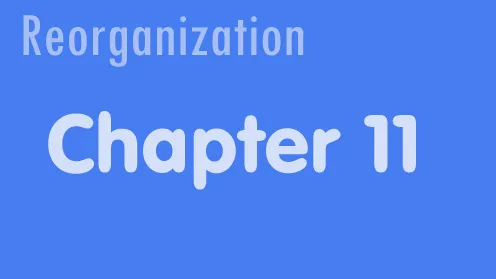What is Chapter 11 Bankruptcy
Chapter 11 Bankruptcy is generally used by Businesses to reorganize their debts and continue operating. Corporations, LLC's , and partnerships, use Chapter 11 because they can't file Chapter 13 Bankruptcy and Chapter 7 does not permit them to continue operating. In Chapter 11, the debtor usually remains in possession of the assets and continues to operate any business, subject to the oversight of the court and the creditors committee. The debtor proposes a plan of reorganization, that upon acceptance by a majority of the creditors, is confirmed by the Bankruptcy Court and binds both the debtor and the creditors.
Debtor in Possession
The Bankruptcy Code places the debtor in possession in the position of a fiduciary, with the rights and powers of a trustee, and it requires the debtor to perform of all but the investigative functions and duties of a trustee. These duties include accounting for property, examining and objecting to claims, and filing informational reports as required by the court. The debtor in possession has the power to employ attorneys, accountants, appraisers, auctioneers, or other professional persons to assist the debtor (requires court approval). The U.S. trustee oversees the compliance of the debtor in possession with the reporting requirements of the case.
Can Individuals File Chapter 11 Bankruptcy
Generally, individuals do not file for Chapter 11 Bankruptcy unless they have debts or assets that exceed certain limits set by the Bankruptcy Code in Chapter 13 cases. The limits change every three (3) years. Sometimes individuals file Chapter 11 because Chapter 13 requires individuals to pay off the debts in the plan within three (3) to five (5) years which is sometimes not possible.
Free Consultation
